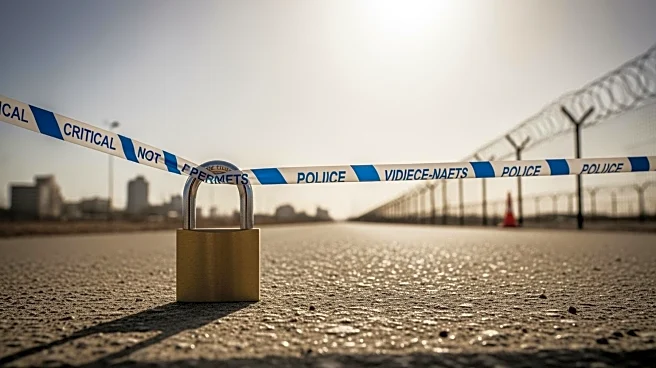What's Happening?
Israel has announced that the Rafah crossing between Gaza and Egypt will remain closed indefinitely, linking its reopening to the release of hostages' remains by Hamas. This decision comes after Hamas handed over two coffins of deceased hostages to Israel,
as part of a ceasefire agreement. The closure of the Rafah crossing, which has been in place since May 2024, is a significant point of contention, as it restricts movement for Gazans seeking medical treatment or visiting family in Egypt. The Palestinian Embassy in Egypt has stated that the crossing will reopen for people returning to Gaza, but Israel's decision to keep it closed has been criticized by Hamas as a violation of the ceasefire deal.
Why It's Important?
The closure of the Rafah crossing has significant humanitarian implications for the residents of Gaza, who rely on it for essential travel and medical needs. The ongoing dispute over the remains of hostages highlights the fragile nature of the ceasefire agreement between Israel and Hamas. The situation underscores the broader geopolitical tensions in the region, with potential impacts on international relations and humanitarian efforts. The closure also affects the ability of aid organizations to deliver necessary supplies to Gaza, exacerbating the humanitarian crisis in the area.
What's Next?
The situation remains tense as both Israel and Hamas navigate the terms of the ceasefire agreement. The international community, including humanitarian organizations, may increase pressure on both parties to resolve the issue of the hostages' remains and reopen the Rafah crossing. The potential for renewed conflict looms if the ceasefire terms are not upheld, with significant consequences for regional stability and international diplomatic efforts.















